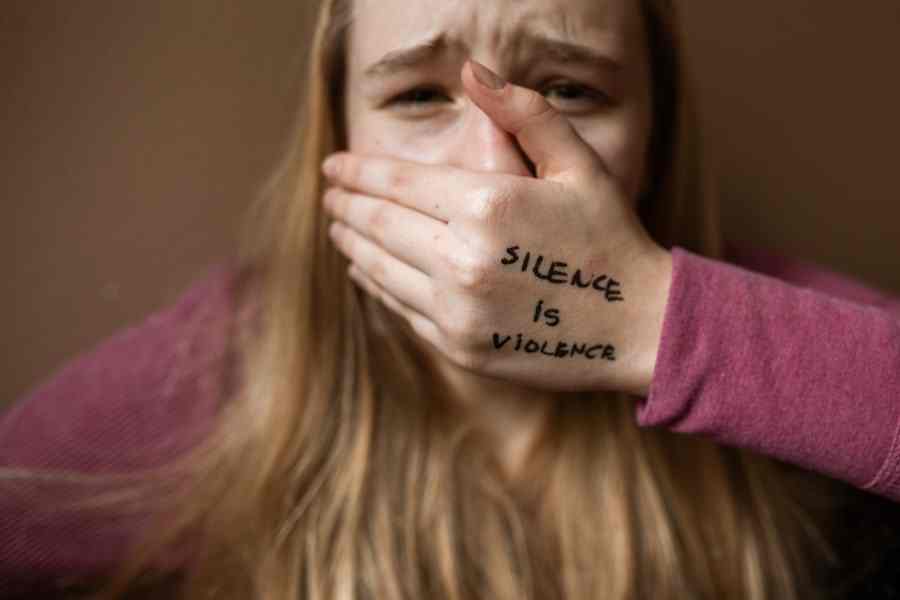Emotional abuse is a form of abuse that can be just as damaging as physical or sexual abuse but is much more difficult to spot. While it may not leave visible scars on its victims, the mental anguish that comes with being emotionally abused can be even more painful than any mark left on the body. Research shows that chronic emotional abuse can have just as much of an impact on one’s well-being as physical or sexual assault. If you have been in an emotionally abusive relationship, you may be wondering whether emotional abuse is a crime. Unfortunately, there are currently no laws at the federal level specifically targeting emotional abuse in relationships. However, some local statutes cover emotional abuse and may apply to your specific situation depending on where you live. Moreover, if your partner has been emotionally abusive to you during your relationship, you may also want to consult with a domestic violence lawyer about other legal remedies that may be available to protect yourself and stay safe from further mistreatment going forward.
Is Emotional Abuse A Crime?
The short answer is no, emotional abuse is not a crime. However, it is a very serious problem that can lead to all kinds of destructive behavior and has the potential to ruin lives. Emotional abuse is the constant belittling, diminishing, ignoring, ridiculing, and shaming of someone by way of words and actions. It is a type of abuse that frequently occurs in relationships but can also take place in families and the workplace. Emotional abuse can lead to serious health problems, self-harm, depression, or even suicide. It effectively creates a sense of helplessness or feeling like there’s no way out.
What Is Considered Emotional Abuse?
Isolation
Isolation is a form of emotional abuse where your partner does not allow you to have any meaningful contact with friends or family members. This can include restricting the number of phone calls or text messages you receive, blocking your access to social media, and even refusing to let you go on vacation.
Controlling Behavior
Controlling behavior is any form of verbal or nonverbal behavior that tries to control how you think and feel. For example, if your partner constantly tells you what to do, who to spend time with, what clothes to wear, or how much money you should have in your bank account, this is controlling behavior. Controlling behavior may be a subtle form of emotional abuse since it can be difficult for victims to recognize when they are being manipulated by their partners.
Gaslighting
Gaslighting is a form of psychological abuse that involves denying the victim’s reality for the abuser to gain power over them. For example, if your partner constantly tells you that everything is fine even when it isn’t (e.g., “You’re overreacting,” “It’s not that bad,” “You’re imagining things”), this is gaslighting because it creates doubt about whether what the victim sees happened in their mind at all. Gaslighting often occurs before there has been physical aggression or other forms of physical harm between partners; however, gaslighting can also occur after physical violence has already occurred between partners as well as during the aftermath of physical violence.
Humiliation
Humiliation is a form of emotional abuse where your partner makes you feel ashamed, embarrassed, and/or humiliated in front of others. For example, if your partner constantly makes fun of or criticizes you or belittles you in front of friends and family, this is humiliation. If your partner humiliates you in front of others by calling you names (e.g., “fatty,” “ugly,” “dumb”), this is also a form of emotional abuse since it makes the victim feel small and worthless.
Stalking
Stalking is a form of emotional abuse that involves repeatedly harassing another person without their consent or knowledge. For example, if your partner continues to contact you after they have been told to stop (e.g., through phone calls or text messages), this may be considered stalking since it creates a sense of fear in the victim and prevents them from having a normal life free from harassment from their partner. Moreover, if your partner continues to stalk you even after being banned from seeing you again (e.g., through constant phone calls or text messages), this may be considered stalking as well since it causes the victim to fear for their safety at home and work every day until they can leave their relationship with their abuser.
Sexual Assault/Rape/Sexual Abuse
Sexual assault/rape/sexual abuse is any form of sexual activity that occurs without the permission of the victim. For example, if your partner forces you to engage in sexual activity that you do not want to engage in (e.g., rape), this is sexual assault. If your partner forces you to have sex with someone else against your will (e.g., rape or sexual abuse), this is also considered sexual assault/rape/sexual abuse since it creates a sense of fear and anxiety for the victim and prevents them from having a normal life free from the emotional, physical, and mental pain that can result from such acts of violence.
Domestic Violence And Abuse
Abuse
Abuse occurs when a partner uses physical violence and/or emotional abuse to control and dominate the other person. Physical violence is any act that involves the use of physical force against another person, while emotional abuse involves the use of verbal or psychological force against another person. For example, if your partner hits you or puts your hands around your neck in an attempt to stop you from leaving their home, this is considered physical violence. If your partner constantly humiliates you in front of others (e.g., by calling you names or belittling you), this is also considered physical violence since it causes the victim to feel small and worthless.
Psychological Abuse
Psychological abuse occurs when a partner uses verbal and/or psychological force to control and dominate the other half. For example, if your partner threatens to harm themselves or others if they leave their relationship with you, this is called “coercive control” because it prevents people from leaving abusive relationships without fear of retribution from their abuser. This type of coercion creates a sense of fear in the victim as well as prevents them from having a normal life free from harassment by their abuser. Moreover, if your partner threatens to harm themselves or others unless they have sex with them (e.g., rape), this is also considered psychological abuse since it creates a sense of fear for the victim and prevents them from having a normal life free from sexual assault by their abuser.
Sexual Abuse
Sexual abuse occurs when a partner forces you to engage in sexual activity against your will. For example, if your partner makes you have sex with them against your will (e.g., rape or sexual abuse), this is considered sexual abuse because it creates a sense of fear and anxiety for the victim and prevents them from having a normal life free from the emotional, physical, and mental pain that can result from such acts of violence.
Physical Abuse/Rape
Physical abuse occurs when a partner uses physical force to harm another person (e.g., hitting or kicking someone). If your partner forces you to have sex with someone else against your will (e.g., rape or sexual abuse), this is also considered physical violence because it creates a sense of fear and anxiety for the victim and prevents them from having a normal life free from the emotional, physical, and mental pain that can result from such acts of violence.
Emotional Abuse
Emotional abuse occurs when a partner uses verbal and/or psychological force to control and dominate the other half. For example, if your partner threatens to harm themselves or others if they leave their relationship with you, this is called “coercive control” because it prevents people from leaving abusive relationships without fear of retribution from their abuser. This type of coercion creates a sense of fear in the victim as well as prevents them from having a normal life free from harassment by their abuser. Moreover, if your partner threatens to harm themselves or others unless they have sex with them (e.g., rape), this is also considered emotional abuse since it creates a sense of fear for the victim and prevents them from having a normal life free from sexual assault by their abuser.
Financial Abuse
Financial abuse occurs when a partner takes advantage of you financially using threats or intimidation (e.g., “If you don’t give me money, I’ll leave you”). If your partner hits you to get money out of you (e.g., physical violence), this is also considered financial abuse since it causes the victim to feel powerless and inadequate compared to the abuser who holds all the financial power in the relationship because they can use force against another person to get what they want.
Stalking/Threats Against Children/Family Members/Neighbors
Stalking occurs when someone repeatedly harasses another person (e.g., following them, standing outside their house or workplace, etc.) in an attempt to control and intimidate them.
If your partner threatens to harm their children or family members (e.g., physical violence), this is also considered stalking since it creates a sense of fear for the victim and prevents them from having a normal life free from harassment by their abuser. If your partner threatens to harm their neighbors (e.g., physical violence), this is also considered stalking since it creates a sense of fear for the victims and prevents them from having a normal life free from harassment by their abuser.
Excessive Surveillance/Stalking/Intimidation/Harassment
Excessive surveillance occurs when someone repeatedly spies on another person (e.g., following them, spying on their home or workplace, etc.) in an attempt to control and intimidate them through threats of violence (e.g., “If you don’t give me what I want, I’ll hurt you”). If your partner constantly spies on you (e.g., snoops through your stuff), this is also considered excessive surveillance because it creates a sense of fear for the victim and prevents them from having a normal life free from harassment by their abuser.
Conclusion
Emotional abuse is a form of abuse that can be just as damaging as physical or sexual abuse but is much more difficult to spot. While it may not leave visible scars on its victims, the mental anguish that comes with being emotionally abused can be even more painful than any mark left on the body. Research shows that chronic emotional abuse can have just as much of an impact on one’s well-being as physical or sexual assault. If you have been in an emotionally abusive relationship, you may be wondering whether emotional abuse is a crime. Unfortunately, there are currently no laws at the federal level specifically targeting emotional abuse in relationships. However, some state laws cover emotional abuse and may apply to your specific situation depending on where you live. Moreover, if your partner has been emotionally abusive to you during your relationship, you may also want to consult with a domestic violence lawyer about other legal remedies that may be available to protect yourself and stay safe from further mistreatment going forward.
















Leave a Reply